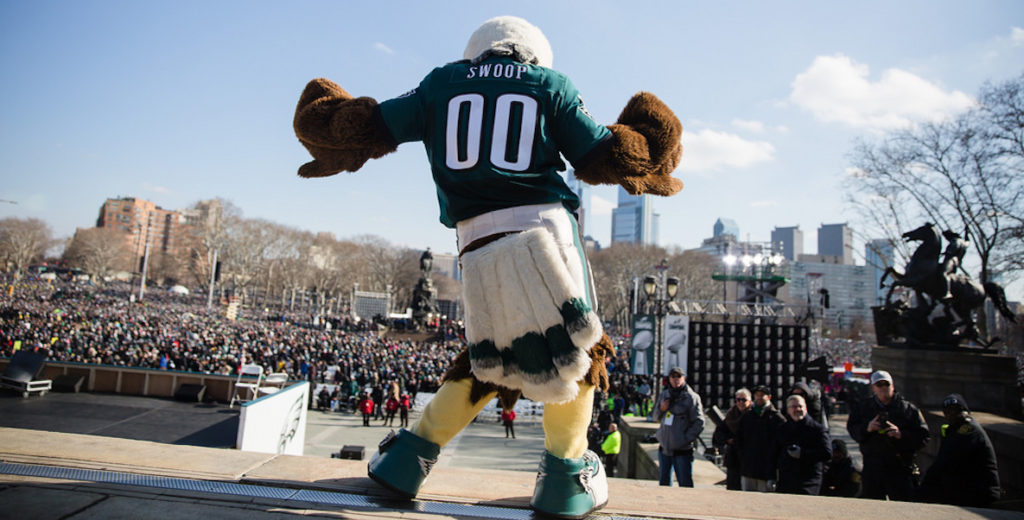Following in the tradition of Connor Barwin and Malcolm Jenkins, former All-Pro wide receiver and current Eagles broadcaster Mike Quick will write weekly for The Citizen this season, analyzing what the Birds will have to do each week on the field to emerge victorious. We’ve paired Quick with Professor Richardson Dilworth, Director of Drexel University’s Center for Public Policy, who will analyze how Philly stacks up off-the-field against the city we play each week. Dilworth, who knows nothing about football, is arguably Quick’s most unlikely teammate ever.
Mike Quick’s On-Field Scouting Report: The number one key offensively for the Eagles is to stay committed to running the football. The Falcons have what we call a fast flow defense. They go fast in one direction in pursuit of the ball, so you have to use that strength of theirs against them. Get them going in one direction, and then trick them into over-pursuing by using misdirection and heading back the other way.
Defensively, the Birds have to pressure quarterback Matt Ryan and get him out of his rhythm. The front defensive line has to get to him fast enough that it disrupts his tempo. The Falcons have a prolific run and pass offense, so the Eagles have to win this game upfront, in the trenches. Our defensive line has to beat up their offensive line.
Prof. Richardson Dilworth’s Off-Field Scouting Report:
What is especially surprising about this week’s chart is the vastly smaller park space in Atlanta compared to Philadelphia, considering the much lower density in Atlanta. I suspect that means there are far more detached houses with lawns in Atlanta—which of course means more highly trafficked roads. Atlanta is notorious for bad traffic. One study ranked its congestion as the eighth worst in the world. Of course, we don’t blow Atlanta away on that score; the same study found us to be the 52nd worst city in terms of traffic.
Something very interesting is going on with the diversity scores below, in which Atlanta scores worse basically because 92 percent of its population is either white or black (52 percent black, 40 percent white); there’s not much left for ethnic diversity beyond that. In Philadelphia, by contrast, only about 84 percent of the population is either white or black (pretty much equally split between the two groups), leaving more space for more ethnic diversity.
But that hardly tells the whole story. Atlanta used to be a “black mecca”—well over 70 percent black. So to the extent that Atlanta has any racial diversity at all, it is because black people have been leaving the city, largely for the suburbs—and they have to a great extent been replaced by white people rather than anyone else (notably younger white people—which may explain the higher percentage of Bachelor degrees). By contrast, Philadelphia’s black population over the last 20 years has remained basically stable—it’s risen slightly, about 3 percent—but the white population has declined substantially, given that white flight basically explains nearly all of Philadelphia’s net population loss over the past 70 years.
And one final thing, speaking of the Atlanta suburbs. It was those suburbs that brought us Newt Gingrich, and no Philadelphia suburb has ever done anything as bad as that. Ever.

